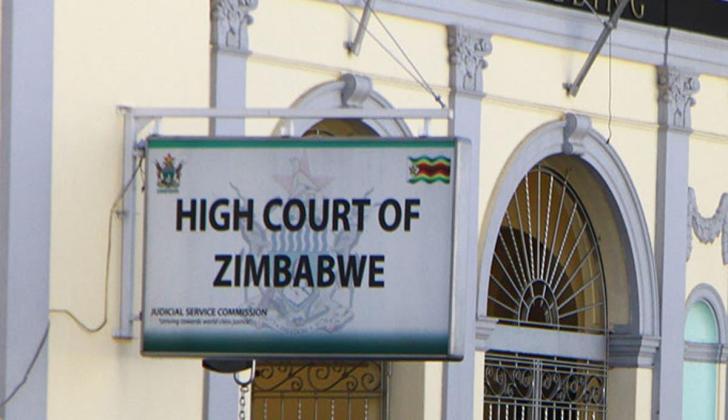News / National
High Court strikes procurement law challenge off the roll
7 hrs ago | Views

A legal challenge mounted by Harare lawyer Mr Naison Machingauta against a controversial provision in Zimbabwe's public procurement law has been struck off the High Court roll, with the court citing critical procedural defects in the application.
At the centre of the case was subsection (9) of section 3 of the Public Procurement and Disposal of Public Assets Act [Chapter 22:23], a clause introduced through Statutory Instrument 156 of 2023 by President Emmerson Mnangagwa. The provision exempts certain public enterprises from the regulatory scope of the procurement law.
Mr Machingauta had petitioned the High Court to declare the provision unconstitutional, arguing that it undermined constitutional principles of transparency, fairness, and accountability. He pointed specifically to sections 315, 195(2), and 298(1)(a) and (d) of the Constitution, claiming the exemption violated these principles. He also sought to have the matter referred to the Constitutional Court for confirmation of invalidity.
However, President Mnangagwa, together with Finance, Economic Development, and Investment Promotion Minister Professor Mthuli Ncube and Attorney-General Virginia Mabiza — all cited as respondents — opposed the application. They challenged it on both procedural and substantive grounds.
The respondents argued that the court application lacked precision, failing to clearly interpret or explain how the cited constitutional provisions were infringed. This, they submitted, left the court with the undue task of deciphering the pleadings and attempting to connect them to the allegations made.
In delivering judgment, Justice Rogers Manyangadze stressed the need for clarity and specificity in constitutional litigation. He ruled that the application was procedurally defective and that the founding affidavit submitted by Mr Machingauta fell short of the required legal standards.
"A broad and conglomerate interpretation of the Constitution may not lead to a correct interpretation. Rarely is a word used superfluously in the Constitution," said Justice Manyangadze, emphasising that every alleged violation must be properly pleaded and individually interpreted.
The judge noted that attempts by Mr Machingauta to clarify his arguments in his answering affidavit and heads of argument could not rectify the original deficiencies in his founding documents. He reaffirmed the legal principle that such supplementary documents cannot replace or cure a defective founding affidavit.
Justice Manyangadze also invoked the doctrine of constitutional avoidance, cautioning against premature resort to constitutional litigation without first exhausting alternative remedies provided under statutory law.
The ruling effectively brings an end to Mr Machingauta's attempt to challenge the presidential regulation via the courts, at least in its current form. The decision serves as a reminder of the rigorous procedural standards required in constitutional cases and underscores the judiciary's insistence on precision in legal pleadings.
At the centre of the case was subsection (9) of section 3 of the Public Procurement and Disposal of Public Assets Act [Chapter 22:23], a clause introduced through Statutory Instrument 156 of 2023 by President Emmerson Mnangagwa. The provision exempts certain public enterprises from the regulatory scope of the procurement law.
Mr Machingauta had petitioned the High Court to declare the provision unconstitutional, arguing that it undermined constitutional principles of transparency, fairness, and accountability. He pointed specifically to sections 315, 195(2), and 298(1)(a) and (d) of the Constitution, claiming the exemption violated these principles. He also sought to have the matter referred to the Constitutional Court for confirmation of invalidity.
However, President Mnangagwa, together with Finance, Economic Development, and Investment Promotion Minister Professor Mthuli Ncube and Attorney-General Virginia Mabiza — all cited as respondents — opposed the application. They challenged it on both procedural and substantive grounds.
The respondents argued that the court application lacked precision, failing to clearly interpret or explain how the cited constitutional provisions were infringed. This, they submitted, left the court with the undue task of deciphering the pleadings and attempting to connect them to the allegations made.
In delivering judgment, Justice Rogers Manyangadze stressed the need for clarity and specificity in constitutional litigation. He ruled that the application was procedurally defective and that the founding affidavit submitted by Mr Machingauta fell short of the required legal standards.
"A broad and conglomerate interpretation of the Constitution may not lead to a correct interpretation. Rarely is a word used superfluously in the Constitution," said Justice Manyangadze, emphasising that every alleged violation must be properly pleaded and individually interpreted.
The judge noted that attempts by Mr Machingauta to clarify his arguments in his answering affidavit and heads of argument could not rectify the original deficiencies in his founding documents. He reaffirmed the legal principle that such supplementary documents cannot replace or cure a defective founding affidavit.
Justice Manyangadze also invoked the doctrine of constitutional avoidance, cautioning against premature resort to constitutional litigation without first exhausting alternative remedies provided under statutory law.
The ruling effectively brings an end to Mr Machingauta's attempt to challenge the presidential regulation via the courts, at least in its current form. The decision serves as a reminder of the rigorous procedural standards required in constitutional cases and underscores the judiciary's insistence on precision in legal pleadings.
Source - the herald






























